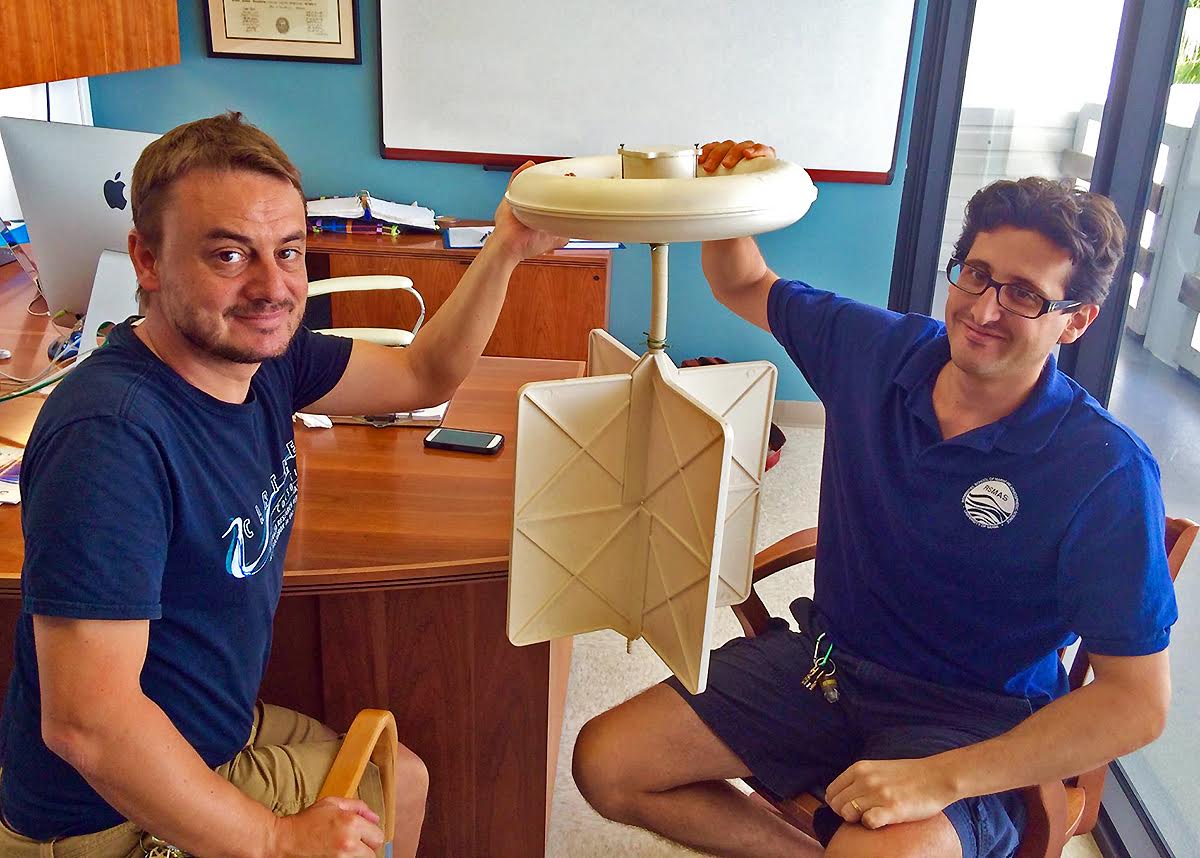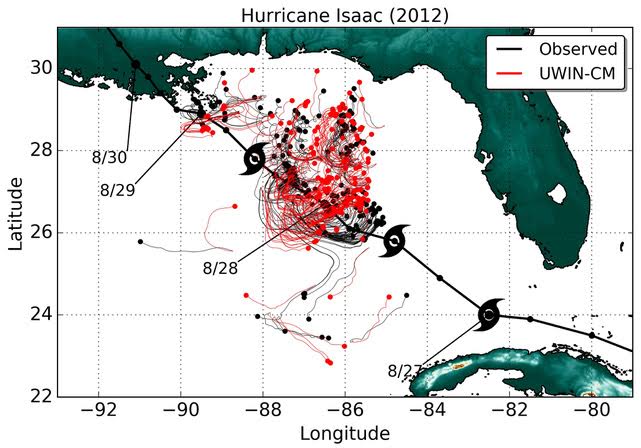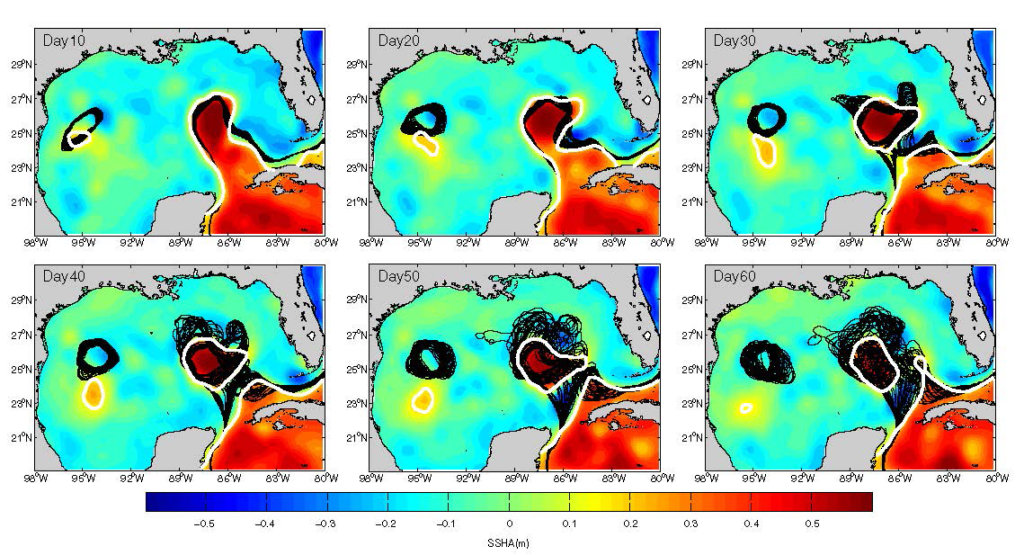“Drifting in the Gulf” Video Depicts the Trials and Errors of Designing the Perfect Drifter
 May 25, 2017
May 25, 2017
May 25, 2017 (GoMRI) The Deepwater Horizon event highlighted the need for more economical and ecofriendly methods to accurately track and study ocean currents. Scientists with the Consortium for Advanced Research on Transport of Hydrocarbon in the Environment II (CARTHE II) spent two years testing different structures and materials to develop a practical, cost-efficient, and […]
read articleStudy Investigates Influence of Hurricanes on Ocean Surface Currents
 May 4, 2017
May 4, 2017
(GoMRI) May 4, 2017 Scientists used GPS data collected from ocean drifters during Hurricane Isaac with a coupled atmosphere-wave-ocean model to better understand how hurricanes affect upper ocean circulation. The researchers found that hurricane-induced Stokes drift (wind-wave-driven water mass transport) created a cyclonic rotational flow to the storm’s left and an anticyclonic rotational flow to […]
read articleUniversity of Miami Continues to Rely on SPOT for Oceanic Flow Study in the Gulf of Mexico
 April 11, 2017
April 11, 2017
April 11, 2017 Covington, LA, April 11, 2017- Globalstar (NYSE MKT: GSAT) announced today that the University of Miami Rosenstiel School of Marine and Atmospheric Science (UM) will be deploying 550 SPOT Trace satellite trackers in its continued research expedition with the Consortium for Advanced Research on Transport of Hydrocarbon in the Environment (CARTHE), which […]
read articleStudy Quantifies Influence of Data Input on Confidence in Loop Current Forecasts

(GoMRI) April 11, 2017 Researchers described in a recent study a surrogate-based technique to quantify the uncertainty in forecasting the oceanic circulation. The authors focused on the time period during the Deepwater Horizon oil spill when an extended Loop Current increased the risk of carrying the oil slick towards the eastern seaboard of the U.S. […]
read article
